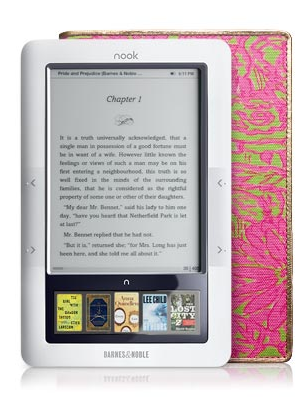Feeling the beads of sweat drip down a heroine’s face, seeing a beautiful sunset out of a narrator’s bedroom window or hearing the sobs of a star-crossed lover is to know the world of a good book. What takes you beyond the written word to the story behind it is the author’s beautifully constructed vernacular and passion for the subject. From the tales of Shakespeare’s love triangles to the anguish of George Orwell’s “1984,” books of literary merit resonate through history and continue to affect people.
It is not so much the message, however, that is in the hot seat of discussion nowadays, but more the messenger. The overarching popularity of the electronic book has caused both relief and anguish in the world of written composition.
DailyFinance.com, a website offering hot-button news on finance, warns that it will cost much more to own a hard copy of a literary work within the next few years. Readers will spend almost 30 percent more on books than today’s average hard cover price, yet the prices of virtual books will remain affordable, according to the website. This should be good news for the average college student, though, as textbooks are predicted to become increasingly more popular in their virtual formats.
Amazon recently announced that the sales of e-readers like the Kindle and Nook have surpassed real books on its website.
Of course, convenience is another relevant issue at hand. What is easier than picking up an e-reader and reading it on the way to class, on a long trip or just slipping it off your shelf for some leisure reading? It is lightweight, unable to be torn, space-savvy and leaves you more worry-free than a real book.
Conversely, I cannot help but feel the expediency of the e-book does not make up for the reverence we should pay to the greatest authors of the past and present. The popular maxim8212;too much of a good thing is bad8212;accurately depicts the concept of so many great writers compressed together into one electronic device. Harper Lee, Vladimir Nabokov, and William Faulkner justly deserve good-sized amounts of shelf space.
As university students, we have a lot on our plates. Sprinting from a class in Rickel to a class in Bass in 10 minutes is a challenge in itself. The convenience of an online textbook, or easily cradled e-reader, can assist in diminishing some of the complexity of our lives and maximizing the generally small spaces we are given in our dorms or apartments.
But although the magnificent stories and information of the past will live on through technologies such as the e-book, it would be heartrending to see the book in its physical form gone forever. There is something poetic in opening the cover of a book to its first page. It is a journey through the binding.
We do not currently have to choose exclusively between the e-book and the real book, but it is vitally important that we will always have an option.
Judith Schomp is a sophomore political science and film-TV-digital media major from Lindale.

